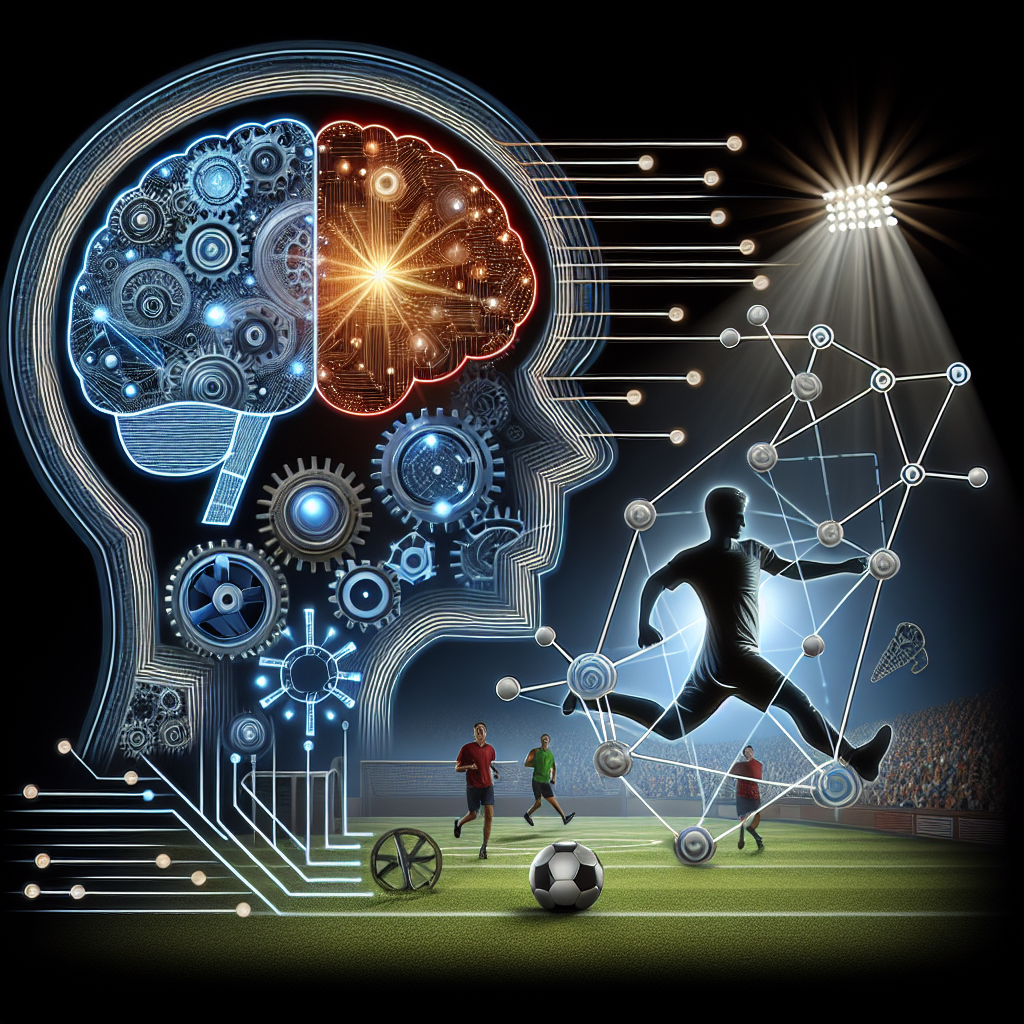The Application of AI in Sports Psychology
Introduction
Artificial Intelligence (AI) has made significant strides in various fields, and sports psychology is no exception. With the advancement of technology, AI has become an integral part of sports psychology, helping athletes and coaches to improve performance, analyze data, and make informed decisions. In this article, we will explore the application of AI in sports psychology and how it is revolutionizing the way athletes train and compete.
AI in Performance Analysis
One of the key areas where AI is making a significant impact in sports psychology is performance analysis. AI-powered tools and software can analyze vast amounts of data in real-time, providing coaches and athletes with valuable insights into their performance. For example, AI can track an athlete’s movements, analyze their technique, and identify areas for improvement. This information can help coaches tailor training programs to address specific weaknesses and optimize performance.
AI can also be used to analyze game footage and provide detailed feedback on an athlete’s performance. By identifying patterns and trends in gameplay, AI can help coaches develop strategies to outperform their opponents. This level of analysis would be impossible to achieve manually, making AI an invaluable tool for sports psychologists and coaches.
AI in Mental Training
In addition to performance analysis, AI is also being used in mental training for athletes. AI-powered apps and tools can help athletes improve their mental toughness, focus, and concentration. These tools use cognitive-behavioral techniques to help athletes overcome performance anxiety, build confidence, and stay motivated.
One example of AI in mental training is the use of virtual reality (VR) to simulate high-pressure situations. By exposing athletes to stressful scenarios in a controlled environment, AI can help athletes develop coping strategies and mental resilience. This type of training can be especially beneficial for athletes who struggle with performance anxiety or nerves in competition.
AI in Injury Prevention
Another area where AI is making a significant impact in sports psychology is injury prevention. AI-powered tools can analyze an athlete’s movement patterns and biomechanics to identify potential injury risks. By monitoring an athlete’s movements in real-time, AI can detect abnormalities or imbalances that may lead to injury. This information can help coaches and trainers develop personalized training programs to reduce the risk of injury and keep athletes healthy.
AI can also be used to track an athlete’s recovery from injury and monitor their progress during rehabilitation. By analyzing data on a daily basis, AI can help athletes and medical staff adjust treatment plans as needed to ensure a full recovery. This level of monitoring and analysis would be impossible to achieve manually, making AI an invaluable tool for sports psychologists and medical professionals.
FAQs
Q: How is AI used in sports psychology?
A: AI is used in sports psychology in various ways, including performance analysis, mental training, and injury prevention. AI-powered tools and software can analyze data in real-time, provide feedback on an athlete’s performance, help athletes improve their mental toughness, focus, and concentration, and identify potential injury risks.
Q: What are the benefits of using AI in sports psychology?
A: The benefits of using AI in sports psychology include improved performance, enhanced decision-making, personalized training programs, injury prevention, and faster recovery from injury. AI can analyze vast amounts of data in real-time, providing coaches and athletes with valuable insights into their performance and helping them make informed decisions.
Q: Are there any limitations to using AI in sports psychology?
A: While AI has many benefits in sports psychology, there are some limitations to consider. AI-powered tools and software rely on data input, which can be subject to errors or biases. Additionally, AI may not be able to capture the nuances of human behavior or emotions, which are important factors in sports psychology.
Q: How can athletes and coaches incorporate AI into their training programs?
A: Athletes and coaches can incorporate AI into their training programs by using AI-powered tools and software to analyze performance data, track progress, and receive feedback on their performance. By leveraging AI in their training programs, athletes and coaches can optimize performance, improve decision-making, and prevent injuries.
Conclusion
The application of AI in sports psychology is revolutionizing the way athletes train and compete. By analyzing data in real-time, providing valuable insights into performance, and helping athletes improve mental toughness and focus, AI is helping athletes reach their full potential. With the continued advancement of technology, we can expect AI to play an even greater role in sports psychology in the future.

